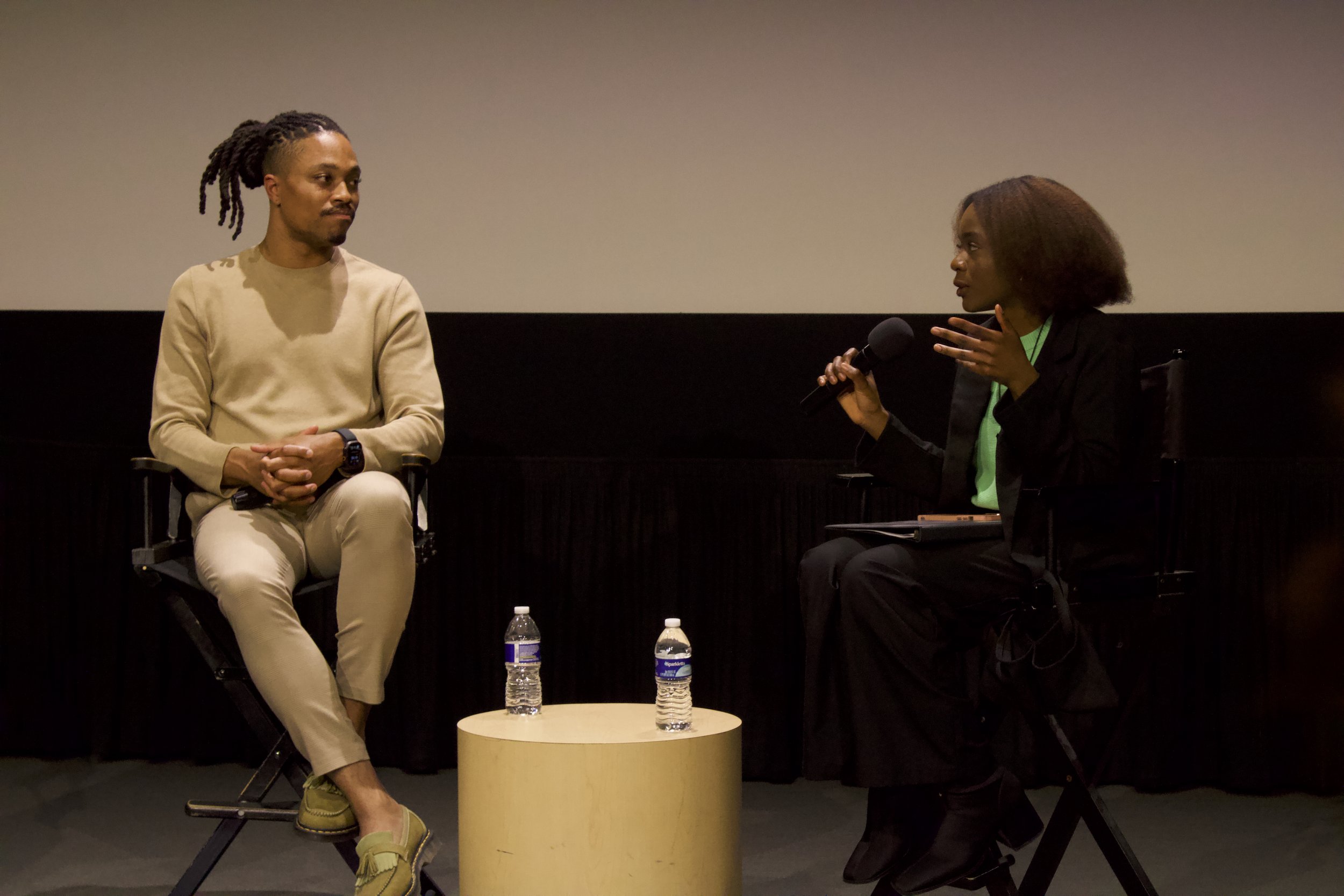Chapman hosts screening, Q&A with DNC Vice Chair Malcolm Kenyatta
Photo by Sean Pacheco, Staff Reporter
Chapman’s Dodge College of Film and Media Arts is no stranger to hosting screenings and Q&As with figures from all walks of life. But earlier this April, it hosted one of its most unique screenings yet.
On April 16, Chapman welcomed Pennsylvania state representative and Democratic National Committee (DNC) Vice Chair Malcolm Kenyatta, accompanied by a screening of the 2022 documentary “Kenyatta: Do Not Wait Your Turn.”
Produced by Chapman adjunct professor and alum Derek Helwig, the documentary tells the story of Kenyatta’s 2022 campaign for a U.S. Senate seat in Pennsylvania, in which he managed to shake up the Democratic primary while becoming the first openly gay person of color in history to appear on the ballot for the Senate.
The documentary, which was filmed between 2020 and 2023, was directed by Tim Harris. Harris was no stranger to the world of film in politics, having directed campaign videos for Arizona senator Mark Kelly and New York congressman Ritchie Torres.
“He and I went to Temple University together, but we met again. And when I was speaking at a rally and he saw me give a speech, he asked if he could do a documentary, and I said yes,” said Kenyatta.
While Kenyatta would lose the primary to John Fetterman, his historic participation propelled him further onto the national stage as a new face in the Democratic party.
“I think it was a series of moments, really driven by this fundamental idea that I think government should actually work for working people and working families, and be in a position to actually do good things in people’s lives,” said Kenyatta while speaking on both his tenure as a state rep and his run for the Senate. “I think any leader, if they’re worth their salt, is listening to people and learning things that help them look at problems in that way,”
Now, as a leading figure in the Democratic party on a national level, Kenyatta hopes to reshape the ways in which the party reaches out to communities across the U.S. He believes that his experience running for the Senate in Pennsylvania would provide a new perspective for the party altogether.
“I always say Pennsylvania is the center of the political universe…On geography, race, religious affiliation, income, (we) are the most reflective of any state in the broader U.S.,” said Kenyatta. “I don’t have all the answers, but I have a valuable perspective that I definitely do bring to the DNC. And that, frankly, is bolstered by all the travel that I do across the country.”
In both the Q&A and his interview with The Panther, Kenyatta emphasized that the most important thing for Democrats to do at this moment is communicate, both by fostering connections across the U.S. and by informing people on the actions and decisions of the incumbent Trump administration.
“In the 80-plus days he’s been in office, (President) Donald Trump has made this country sicker, he has made us weaker, and he has made us poorer,” said Kenyatta. “I think just us telling that story is why polling that I just saw today (showed) for the first time in years, a majority of the American people trust Democrats on the economy and don’t trust this guy.”
The second Trump administration has been notable for its rapid blitz on multiple policy fronts, but one of the most prominent actions has been the attempt to restrict administrative autonomy of student organizations on college campuses, including at Chapman University.
“First, I would say to the universities, ‘do not give in to the bullshit.’ Authoritarians don’t take ‘yes’ for an answer. You cannot appease your way out of a dictatorship,” said Kenyatta.
He continued, advising that citizens have hope in these moments of uncertainty: “He’s not the first would-be dictator in this country, or in other countries. And they can be defeated. You know, (an audience member) said something today that I am thinking about and will continue to think about. We have to have a dangerous amount of hope in this moment, and to engage with the reality that the chaos and corruption that is running this administration is going to have real, measurable impacts on people’s lives that are painful and pronounced.”
Kenyatta spoke on the need to push for further unity, not just in resistance, but as a way of pushing back against increasing polarization and isolation within society.
“I think we have to have…a long term view and a view that is enforced by our belief in each other. What folks need to do right now is turn to each other, not turn on each other, and to seek out community everywhere they look,” said Kenyatta. “I think the more that we go and engage with people at sports events, at our faith centers, at wherever you are, I think you’re better off. And I think that it’s what we need in this moment.”

